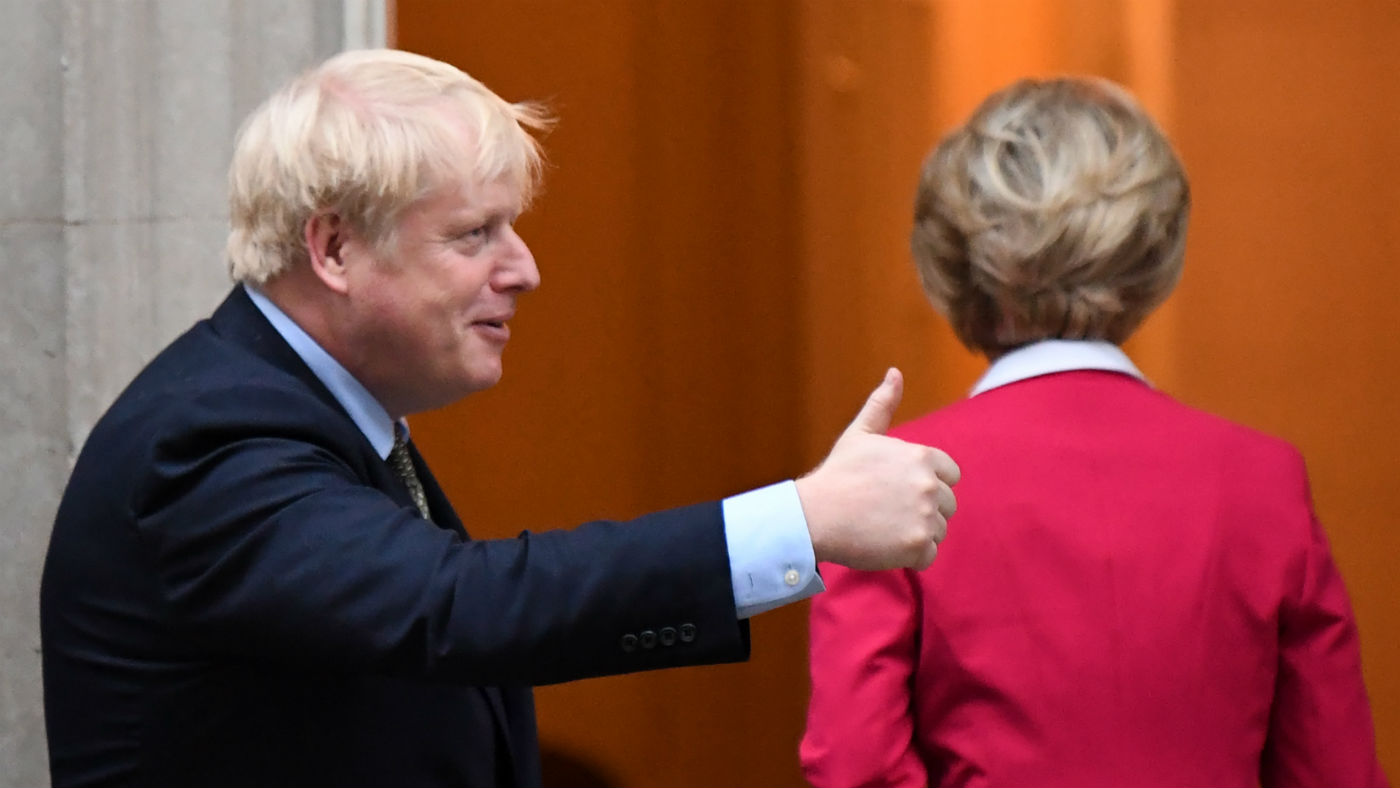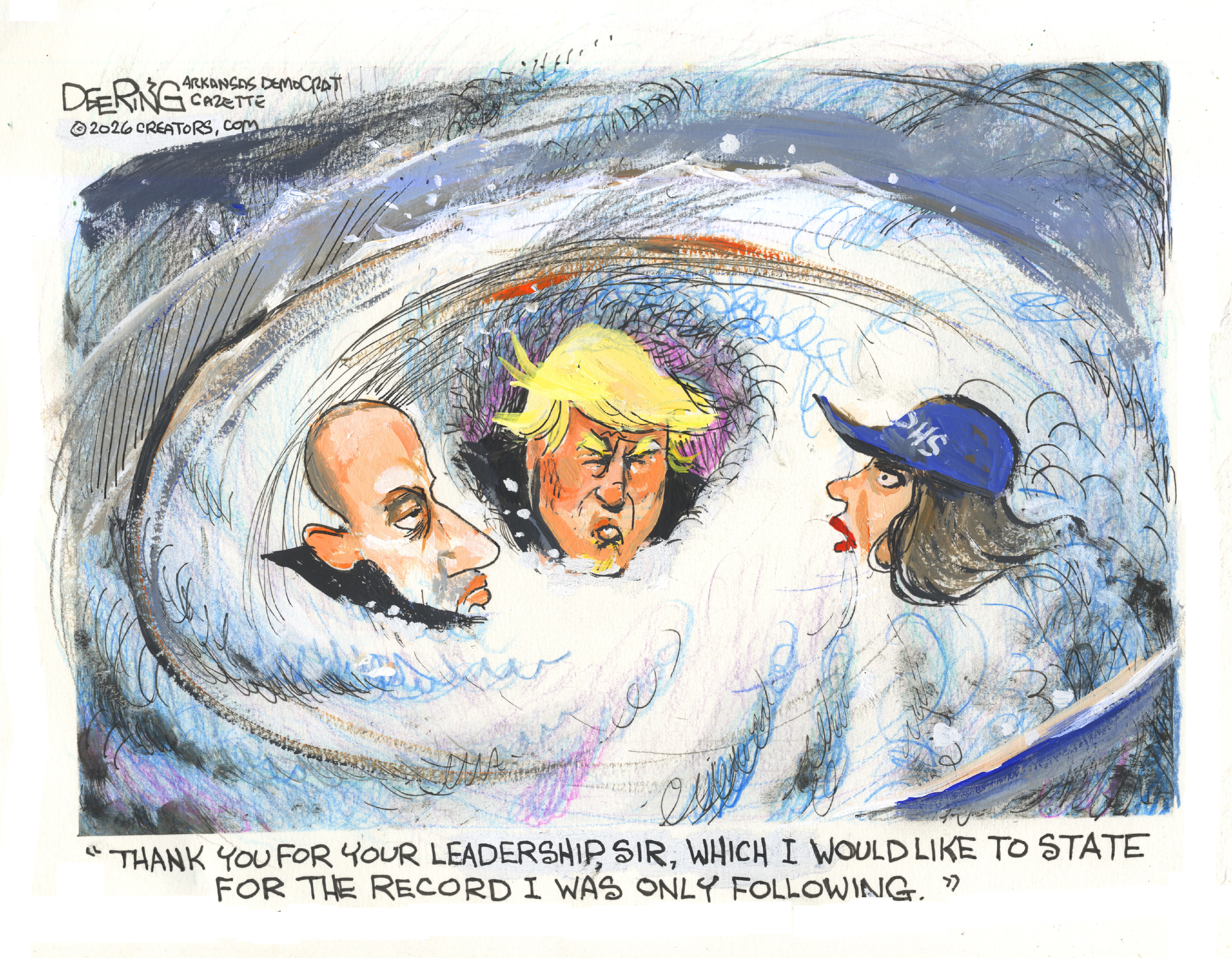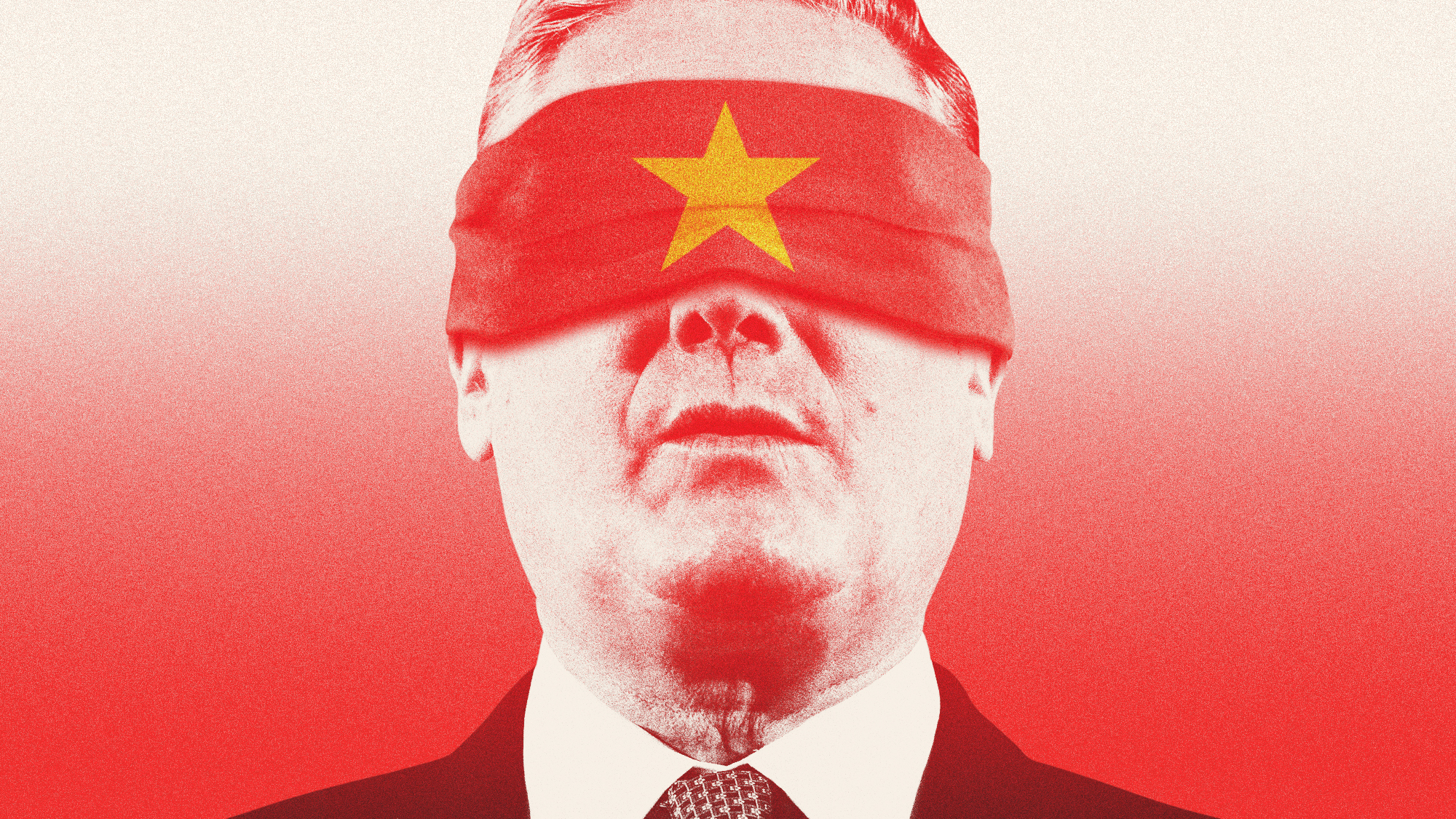Is a UK-EU trade deal this year possible?
As MPs pass the Withdrawal Bill, The Week looks at whether the prime minister’s deadline is realistic

A free daily email with the biggest news stories of the day – and the best features from TheWeek.com
You are now subscribed
Your newsletter sign-up was successful
MPs have finally voted through the Withdrawal Agreement Bill after almost a year of deadlock.
The Commons voted 330 to 231 in favour of the bill which will now pass to the House of Lords for further scrutiny next week.
Work is already underway to thrash out a future UK-EU trade deal. But Brussels’ chief Brexit negotiator Michel Barnier issued the prime minister a new warning yesterday about the possibility of the UK crashing out of the EU “without any arrangements” if a trade deal cannot be done by the end of 2020.
The Week
Escape your echo chamber. Get the facts behind the news, plus analysis from multiple perspectives.

Sign up for The Week's Free Newsletters
From our morning news briefing to a weekly Good News Newsletter, get the best of The Week delivered directly to your inbox.
From our morning news briefing to a weekly Good News Newsletter, get the best of The Week delivered directly to your inbox.
Johnson’s insistence that the transition period will not be extended beyond 2020 “has left Brussels with little choice”, says Politico.
According to the publication, “one of (Brussels’) chief fears is that Britain could emerge as a light-regulation competitor to the EU after Brexit, so they have traditionally not wanted Britain locking down small, sector-by-sector zero-tariff trade deals before it commits not to deviate from EU rules and regulations. However, given the intense pressure of Johnson’s deadline, EU officials and diplomats say the European Commission is now considering a safety net option of negotiating separate, limited deals in four to five sectors, covering trade, fisheries, security and foreign policy as well as transport and aviation.”
Barnier confirmed as much yesterday when he said Brussels will “prioritise” and try to secure a “basic agreement” with the UK – with the EU's red lines being trade in goods, regulatory alignment, and fishing.
In a meeting with the prime minister in Downing Street on Wednesday European Commission President Ursula von der Leyen said that the issues to be resolved would have to be prioritised, “setting the scene for an early confrontation between the two sides in deciding which areas of future co-operation to tackle first”, says The Times.
A free daily email with the biggest news stories of the day – and the best features from TheWeek.com
–––––––––––––––––––––––––––––––For a round-up of the most important stories from around the world - and a concise, refreshing and balanced take on the week’s news agenda - try The Week magazine. Start your trial subscription today –––––––––––––––––––––––––––––––
One major area of tension already emerging appears to be over fishing. George Parker in the Financial Times reports that Johnson told von der Leyen that Britain would insist on “maintaining control of UK fishing waters” after it leaves the EU, “setting up a big clash with Brussels as the two sides prepare for testing negotiations after Brexit”.
“Even if a ‘basic’ deal is cut, covering some sectors in time,” says The Independent, “any businesses not covered by it would be hit.”
The road ahead may be bumpy but “the area of a potential agreement is actually fairly large” says Stephen Bush in the New Statesman.
He argues that “the things that the British government and the most committed Brexiteers have made a lot of noise about – zero tariff access, the end of free movement, being outside the European Court of Justice – are fairly easy for the EU to offer, provided the UK is willing to swallow concessions on issues such as the level-playing field and agree to a low standard of market access to the EU”.
“Boris Johnson certainly can secure a bare-bones agreement in a year, the question is whether his decision to do so would look and feel so smart by 2024,” he concludes.
Help may be at hand, however, in the unlikely form of famed spoon-bender and psychic Uri Geller, who told the PA news agency that his “telepathic abilities”, as well as his “charisma, chutzpah and contacts”, would ensure the UK reaches a deal by the end of 2020.
“With my energies, with my mind power, with my know-how, with my connections to world leaders, I can definitely help with the Brexit negotiations,” he said.
-
 6 gorgeous homes in warm climes
6 gorgeous homes in warm climesFeature Featuring a Spanish Revival in Tucson and Richard Neutra-designed modernist home in Los Angeles
-
 Russia’s ‘cyborg’ spy pigeons
Russia’s ‘cyborg’ spy pigeonsUnder the Radar Moscow neurotech company with Kremlin-linked funding claims to implant neural chips in birds’ brains to control their flight, and create ‘bio-drones’
-
 Political cartoons for February 8
Political cartoons for February 8Cartoons Sunday’s political cartoons include going down the drain, American history, and more
-
 Can Starmer continue to walk the Trump tightrope?
Can Starmer continue to walk the Trump tightrope?Today's Big Question PM condemns US tariff threat but is less confrontational than some European allies
-
 The high street: Britain’s next political battleground?
The high street: Britain’s next political battleground?In the Spotlight Mass closure of shops and influx of organised crime are fuelling voter anger, and offer an opening for Reform UK
-
 EU-Mercosur mega trade deal: 25 years in the making
EU-Mercosur mega trade deal: 25 years in the makingThe Explainer Despite opposition from France and Ireland among others, the ‘significant’ agreement with the South American bloc is set to finally go ahead
-
 Biggest political break-ups and make-ups of 2025
Biggest political break-ups and make-ups of 2025The Explainer From Trump and Musk to the UK and the EU, Christmas wouldn’t be Christmas without a round-up of the year’s relationship drama
-
 Is Keir Starmer being hoodwinked by China?
Is Keir Starmer being hoodwinked by China?Today's Big Question PM’s attempt to separate politics and security from trade and business is ‘naïve’
-
 ‘The menu’s other highlights smack of the surreal’
‘The menu’s other highlights smack of the surreal’Instant Opinion Opinion, comment and editorials of the day
-
 ‘Autarky and nostalgia aren’t cure-alls’
‘Autarky and nostalgia aren’t cure-alls’Instant Opinion Opinion, comment and editorials of the day
-
 Is a Reform-Tory pact becoming more likely?
Is a Reform-Tory pact becoming more likely?Today’s Big Question Nigel Farage’s party is ahead in the polls but still falls well short of a Commons majority, while Conservatives are still losing MPs to Reform